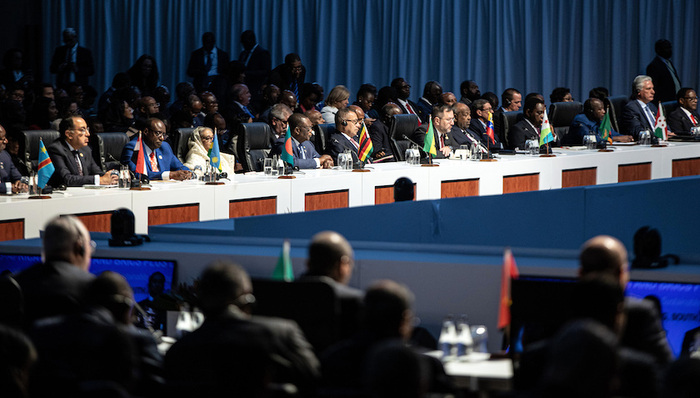BRICS Announces Major Expansion, China Advances Growth of Non-Western Bloc
In a historic move at the BRICS Summit in Johannesburg, South Africa, in August 2023, the existing five members—China, Brazil, Russia, India, and South Africa—collectively agreed to invite six new countries to join the bloc, marking its first expansion in over a decade and significantly increasing its global economic weight.
CHINA,POLITICS
Global N Press
8/25/20231 min read


In a historic move at the BRICS Summit in Johannesburg, South Africa, in August 2023, the existing five members—China, Brazil, Russia, India, and South Africa—collectively agreed to invite six new countries to join the bloc, marking its first expansion in over a decade and significantly increasing its global economic weight.
At the BRICS Summit in South Africa, member nations announced the invitation of six new countries to join: Saudi Arabia, Iran, the UAE, Argentina, Egypt, and Ethiopia, nearly doubling the group's membership. This massive expansion was considered the most significant strategic move since the BRICS mechanism's inception, substantially increasing the bloc's share of global GDP and population. China played a leading role in pushing the expansion, aiming to amplify the voice of the "Global South" and accelerate the process of "de-dollarization."
The BRICS expansion was viewed internationally as another critical marker of rising and developing powers challenging the Western-led order. From a conservative perspective, the expansion solidified a non-Western alliance centered around China, particularly within the Global South. The inclusion of major Middle Eastern oil exporters like Saudi Arabia and Iran exacerbated long-term U.S. concerns about its geopolitical influence and the status of the U.S. dollar as the global reserve currency. The move propelled multilateralism toward greater regional and ideological bloc formation.




